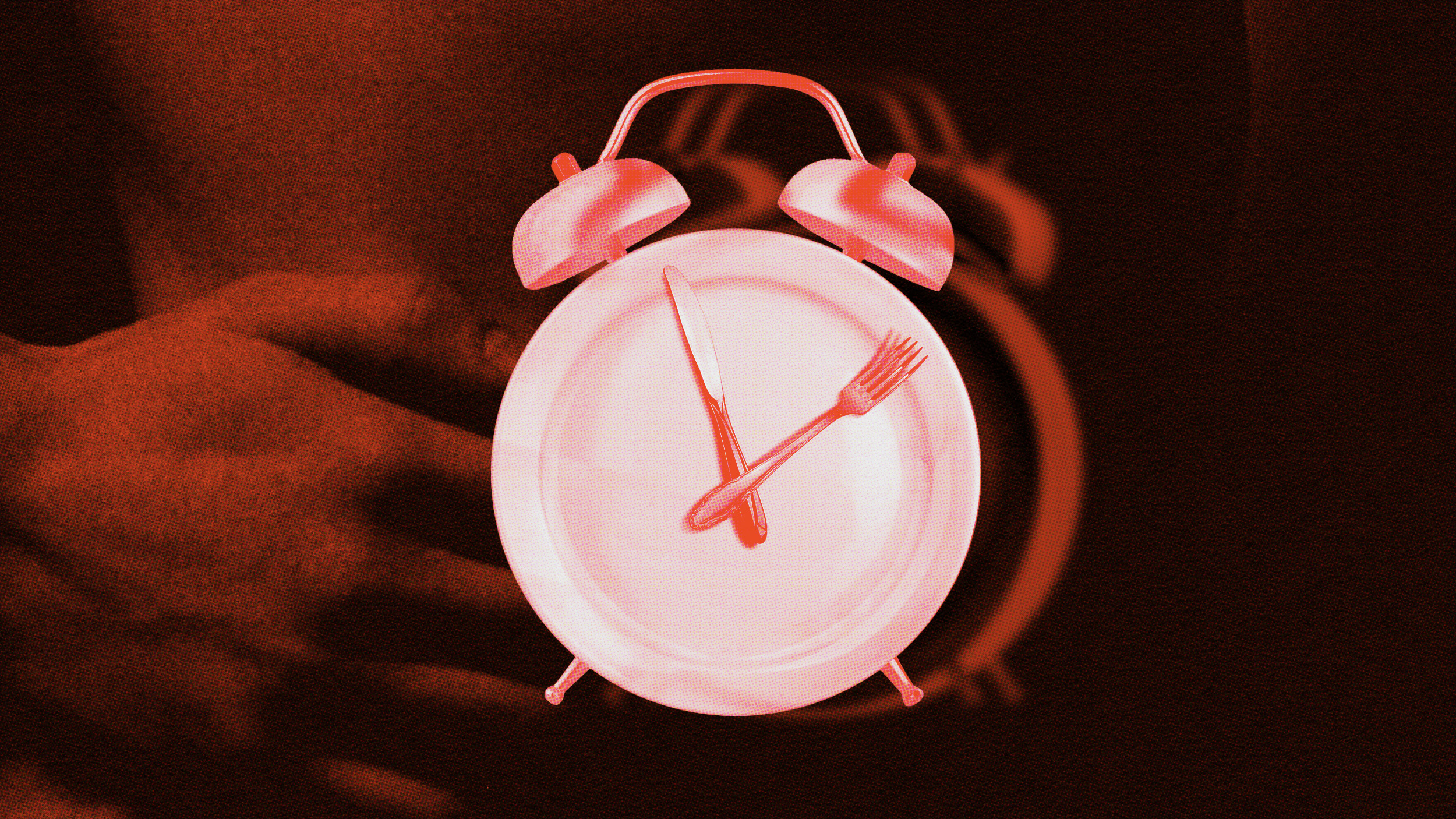Intermittent fasting and keto diet: Can you do both at the same time?

Photo credit: Derek Owens via Unsplash
- The keto diet and intermittent fasting are two weight-loss methods that have gained popularity in recent years.
- Both can put the body in a state of ketosis, which leads to many of the same benefits.
- However, scientists are still researching both intermittent fasting and the keto diet, and it’s best to consult a doctor before making any drastic changes to your dietary habits – especially two changes at same time.
The keto diet and intermittent fasting are two popular, effective ways to lose weight quickly. Both methods bring upon similar changes in the body: more ketones, lower blood sugar and, at least anecdotally, improved mood and mental clarity. Both also call for less snacks, though the keto diet restricts which snacks you eat while intermittent fasting restricts when you snack.
It’s generally safe to experiment with either the keto diet or intermittent fasting (though it’s always better to consult a doctor first). But how safe is it to combine the two? First, let’s take a look at what both of these weight-loss approaches do to the body, and how those processes might interact.
The keto diet
In simple terms, ketosis is a metabolic process in which the body starts burning fat for fuel instead of sugar (glucose). Ketosis occurs naturally when the body doesn’t have enough glucose to use as energy, so it instead turns to stored fats, which it converts into ketones that are distributed through blood to muscles and other tissue. The keto diet triggers this process by calling for a diet high in fat and low in carbohydrates, which results in lower levels of blood sugar and insulin.
Although scientists are still researching exactly how ketosis affects the body, some studies suggest keto diets can:
- Improve mood and mental clarity
- Improve heart health
- Decrease seizures among epilepsy patients
- Help in cancer treatments (potentially)
- Decrease acne
Cutting carbs is a sure way to put your body in a state of ketosis. Another way? Fasting.
Intermittent fasting
Three square meals a day is the norm in the developed world, but in terms of human evolution it’s a relatively new idea. The breakfast-lunch-dinner routine was likely established by Europeans, some of whom scoffed at the “uncivilized” Native Americans who didn’t have rigid eating times and changed dietary habits with the seasons. But, as Yale University professor and author of Food: The History of Taste Paul Freedman argues, there’s no biological reason for eating three meals a day at specific times.
Research shows that replacing rote eating habits with controlled fasting can be beneficial for your health, particularly through intermittent fasting, which can include fasting for several days at a time, fasting for 18 hours a day and eating only during the remaining six, and similar approaches.
Studies suggest intermittent fasting can:
- Increase longevity in animals and humans
- Increase levels of human growth hormone, promoting healthy muscle growth and fat loss
- Improve protection against cardiovascular diseases
- Gently stress your cells and neurons, strengthening them
- Promote autophagy — a natural process in which cells shed damaged cells, toxins
One particularly interesting benefit of intermittent fasting is that it seems to be effective at increasing insulin sensitivity, which refers to how cells respond to insulin – the hormone that tells cells to allow sugar to enter so it can be used as fuel.
“The food we eat is broken down by enzymes in our gut and eventually ends up as molecules in our bloodstream,” Monique Tello, MD, MPH, wrote for Harvard Health Blog. “Carbohydrates, particularly sugars and refined grains (think white flours and rice), are quickly broken down into sugar, which our cells use for energy. If our cells don’t use it all, we store it in our fat cells as, well, fat. But sugar can only enter our cells with insulin, a hormone made in the pancreas. Insulin brings sugar into the fat cells and keeps it there.”
But for reasons scientists don’t completely understand, our cells can become resistant to insulin, which can cause your pancreas to produce too much of the hormone and then, after it becomes fatigued, not enough. Intermittent fasting might break that cycle by putting your body in a fasting state in which it doesn’t overproduce insulin, as Dr. Jason Fung told the Bulletproof Radio podcast:
“If you become very insulin resistant, then your insulin levels are up all the time, your body is always trying to shove the energy into the fat cells, and then you feel cold and tired and lousy. That’s the real problem. Resistance really depends on two things. It’s not simply the high levels, but it’s the persistence of those levels. What people have realized is that the insulin resistance, because it depends on those two things, a period of time where you can get your insulin levels very low is going to break that resistance because it breaks that persistence. Not simply the levels, but the persistence of those levels.”
Combining the keto diet with intermittent fasting
The major link between the keto diet and intermittent fasting is that they both can put the body into ketosis, generally resulting in lower levels of blood sugar and insulin, and therefore weight loss. But are they safe to do together?
Intermittent fasting will almost surely help you reach ketosis faster than a keto diet will alone, typically within 24 hours to three days. It’s safe to say that, in terms of weight loss, combining these two approaches is likely to enhance the other’s efficacy. But that’s not to say everyone should do it.
Intermittent fasting and keto diets have been linked to mood problems in the weeks after beginning one or the other – irritability, anxiety, depressive symptoms. (For keto diets, this is often called the “keto flu.”) It might be unsurprising that a drastic change in dietary habits would result in mood swings, and, to be sure, anecdotal reports suggest these symptoms tend to clear up eventually if people stick to their new routines. Still, it’s best to consult your doctor before making such a drastic change – especially if you already suffer from a psychiatric condition, or a condition significantly affected by levels of blood sugar and insulin, like diabetes.
If you’re going to move forward with combining intermittent fasting with the keto diet, consider these bits of advice from Perfect Keto:
“Make sure you still eat enough. Intermittent fasting does help you naturally eat less during the day, but be sure you’re still eating nutritious ketogenic foods to avoid any deficiencies or metabolic issues. Use a website or app to calculate ideal caloric intake and your ketogenic macros for each day, then track them to make sure you’re getting sufficient nutrition.
Measure your ketone levels. Even though fasting can really help you stay in ketosis, it’s still important to make sure you aren’t eating too many carbs or doing anything else to kick you out of ketosis. Track your ketones often to make sure you’re actually in ketosis!”





